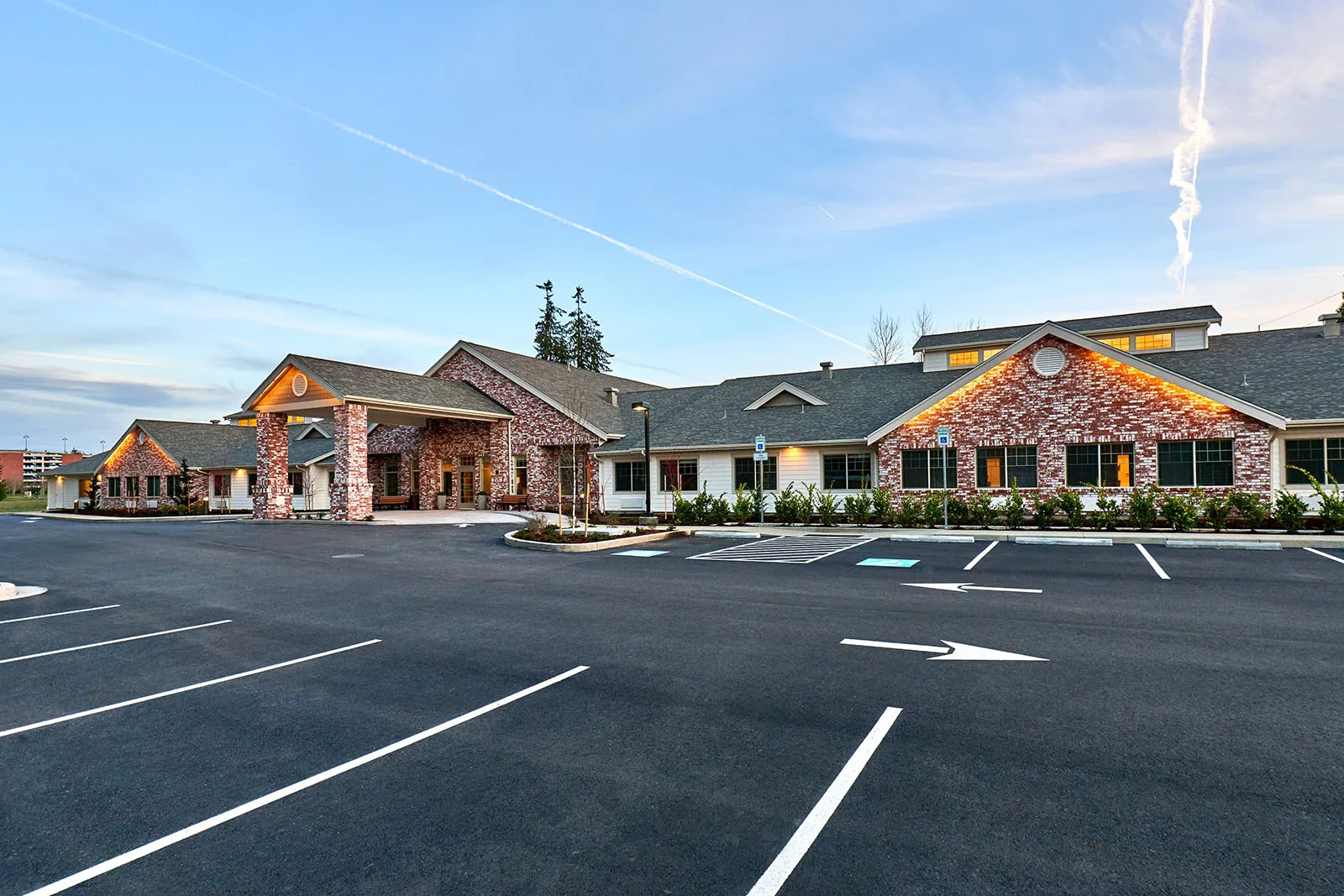Recognizing the early signs of dementia can be challenging for caregivers. Memory loss and changes in behavior are often subtle at first but can significantly impact daily life. This guide will highlight key indicators of dementia, emotional and physical changes to watch for, and the importance of early detection in dementia treatment. Understanding these aspects can help caregivers provide better memory care or explore options for respite care. By staying informed, caregivers can better support their loved ones and themselves during this difficult journey.
Key Takeaways
- Recognizing early signs of dementia helps improve care provided by caregivers
- Changes in memory and communication should prompt medical evaluations for loved ones
- Lifestyle adjustments play a vital role in managing dementia symptoms and enhancing quality of life
- Engaging in social activities can promote emotional well-being and cognitive function
- Caregiver education is crucial for effective support of individuals experiencing dementia
Recognizing the Early Signs of Dementia in Loved Ones
Recognizing early signs of dementia can significantly impact the quality of care provided in memory care facilities. Caregivers, who often require respite care, should identify memory lapses and confusion in daily tasks, notice changes in communication abilities, and observe alterations in mood and behavior. Additionally, watching for disinterest in previously enjoyed activities, assessing difficulty in decision-making, and noting changes in personal hygiene are crucial for understanding the progression of this brain disease.
Identify Memory Lapses and Confusion in Daily Tasks
Memory lapses and confusion during daily tasks can be early indicators of dementia in loved ones. Individuals may forget important dates, struggle to follow recipes, or misplace items more frequently. These incidents can reflect broader changes in cognitive health, impacting their overall well-being and mood, which may lead caregivers to seek further assessment of the individual’s condition.
Noticing these memory-related challenges can help caregivers identify potential risks early on. If a loved one begins to exhibit difficulty in remembering how to perform familiar activities, it may signal the onset of cognitive decline. Addressing these concerns early can initiate discussions about health management and support, empowering caregivers to provide better assistance in navigating daily life.
Notice Changes in Communication Abilities
Changes in communication abilities can manifest in various ways, indicating the potential onset of dementia. A loved one may struggle to find the right words, frequently repeat themselves, or become easily confused during conversations. Caregivers should pay attention to these signs, as they can lead to frustration and isolation for both the individual and their family. Addressing these difficulties early can assist caregivers in understanding the individual’s needs and exploring possible therapies or medication adjustments.
Caregivers should also be aware of any significant shifts in behavior related to communication, particularly if a loved one has a history of alcohol use. Increased confusion in speech or difficulty following discussions may point to changes that require medical evaluation. Recognizing these changes is crucial, as they can influence the type of support or therapy options that may be appropriate for the individual:
- Look for signs of confusion in everyday conversations.
- Monitor for repetition of phrases or questions.
- Assess the need for therapeutic support to enhance communication.
- Consider the impact of medication or alcohol consumption on cognitive function.
Observe Alterations in Mood and Behavior
Alterations in mood and behavior can signal early stages of dementia in loved ones. Caregivers may observe increased irritability, sadness, or anxiety that seems out of character. Research indicates that such emotional changes can often accompany cognitive decline related to aging and may require sensitive evaluation, as these shifts can greatly impact the individual's quality of life.
It is also important for caregivers to recognize that withdrawal from social interactions or a loss of interest in previously enjoyed activities can be a significant indicator. Engaging the loved one in light exercise, such as walking or participating in group activities, may help alleviate some mood-related symptoms. Monitoring these behavioral changes and discussing them with a healthcare professional can lead to actionable strategies like exploring treatment options, including medications such as donanemab or lecanemab, that may assist in managing symptoms effectively.
- Pay attention to mood fluctuations and unusual behavior.
- Recognize signs of withdrawal from social interactions.
- Consider light exercise as a way to boost mood.
- Discuss observed changes with a healthcare professional.
Watch for Disinterest in Previously Enjoyed Activities
Disinterest in activities that a loved one once enjoyed can be an early warning sign of dementia, reflecting underlying cognitive changes. This shift may signal the impact of neurological issues affecting language and decision-making processes, leading to frustration during conversations about past hobbies. Caregivers should be proactive in observing these changes, as recognizing them early can facilitate timely interventions and health care support.
Engaging loved ones in discussions about their interests can provide valuable insight into their emotional well-being. If they show reluctance to participate in previously favored activities, caregivers should consider whether other factors, like a past injury or fluctuating moods, contribute to this change. Encouraging light exercise or gentle social interactions can help rekindle their interest, thereby improving both their mood and cognitive function.
- Monitor for decreased participation in favorite activities.
- Assess the impact of neurological factors on behavior and interests.
- Facilitate conversations about their preferences to identify changes.
- Encourage social engagement to boost mood and interest.
Assess Difficulty in Decision-Making and Planning
Assessing difficulty in decision-making and planning is a crucial step in recognizing early signs of dementia. Individuals may struggle with problem solving, whether that involves simple tasks like planning meals or managing finances. Changes in cognitive function can affect how they evaluate situations or make choices, raising concerns for caregivers regarding their loved one's ability to maintain independence within the community.
Moreover, these challenges may be accompanied by confusion about dietary options, such as understanding the benefits of particular vitamins or the implications of pollution on health. Caregivers should note if their loved ones require more assistance when making everyday decisions, which can lead to increased reliance on others. Recognizing these patterns early allows for timely interventions, promoting better management and support while enhancing the individual's quality of life.
Look for Changes in Personal Hygiene and Self-Care
Changes in personal hygiene and self-care can be significant indicators of early dementia in loved ones. Caregivers may notice signs of forgetting simple routines, such as showering or brushing teeth, which can stem from cognitive decline affecting attention and memory. In some cases, individuals may even neglect their grooming habits entirely, which highlights the need for support and monitoring to ensure their well-being.
Furthermore, caregivers should be alert to potential changes in sleep patterns or unusual behaviors, such as hallucination or confusion surrounding basic self-care tasks. These alterations can signify the progression of dementia and the impact it has on daily life, including the health of blood vessels and overall cognitive function. Recognizing these signs early allows caregivers to implement strategies for assistance, ultimately enhancing the individual's quality of life and health management.
Find a Memory Care Community Near You
Understanding Memory Loss and Cognitive Decline
Understanding memory loss and cognitive decline is crucial for caregivers monitoring early signs of dementia. Differentiating between normal aging and dementia symptoms can aid in recognizing risk factors. This section examines the roles of short-term and long-term memory, explores how dementia influences everyday memory functions, reviews types of memory disorders, and evaluates the impact of memory loss on relationships, including considerations such as hypertension and visual perception.
Distinguish Between Normal Aging and Dementia Symptoms
Distinguishing between normal aging and potential dementia symptoms is vital for caregivers. While aging naturally impacts memory, individuals may forget names or appointments occasionally without causing significant disruption to their daily lives. In contrast, dementia often leads to more severe memory problems, such as forgetting recent conversations or losing the ability to perform basic tasks. Resources like the Mayo Clinic provide clear information on identifying these key differences, emphasizing that caregivers should monitor how these changes affect overall well-being and interactions.
Another essential aspect to consider involves the role of lifestyle factors in cognitive health. For instance, high blood pressure and smoking can exacerbate memory issues, leading to quicker cognitive decline. Caregivers should be aware of how factors such as these, alongside protein intake and overall perception, may influence their loved one’s condition. Recognizing the signs of cognitive decline early allows for proactive measures that can help maintain quality of life.
- Identify the differences between normal memory lapses and more serious cognitive issues.
- Understand the impact of lifestyle factors, such as blood pressure and smoking, on memory.
- Use resources like the Mayo Clinic to inform care strategies.
- Observe how lifestyle choices can affect overall cognitive perception.
Examine the Role of Short-Term and Long-Term Memory
Short-term memory plays a crucial role in everyday functioning and is often the first area affected in individuals experiencing cognitive decline associated with dementia. Caregivers may observe that their loved ones struggle to remember recent conversations or events, which can highlight the need for early intervention. In society, understanding these short-term memory challenges can help families recognize the early warning signs of dementia, prompting timely discussions with healthcare professionals.
Long-term memory, however, tends to be more resilient in the early stages of dementia, allowing individuals to recall events from their past, such as childhood memories or long-held skills. Caregivers may find that encouraging a healthy diet and engaging in memory-enhancing activities can support cognitive health and potentially slow down memory loss. Fostering environments where individuals can share stories from their past not only strengthens long-term memory but also reinforces meaningful connections within families.
- Short-term memory problems may indicate early stages of dementia.
- Long-term memory often remains intact longer but can still show decline.
- Promoting a healthy diet can support overall cognitive function.
- Engaging in memory-related activities can enhance recall and connections.
Review How Dementia Affects Everyday Memory Usage
Dementia can significantly disrupt everyday memory usage, affecting how individuals process information and recall past experiences. For example, a caregiver might notice that their loved one struggles to remember recent conversations, leading to increased stress during interactions. Clinical trials suggest that emotional factors, such as anxiety or depression, can further compound these memory issues, making it even more challenging for individuals to navigate daily life.
Additionally, environmental factors like air pollution may also influence cognitive decline, contributing to difficulties in maintaining focus and clarity of thought. Weight loss can sometimes accompany this decline, as changes in memory affect eating habits and routine. Understanding these dynamics helps caregivers approach situations with empathy and seek appropriate strategies for support, ensuring their loved ones maintain a better quality of life despite their cognitive challenges.
Explore Types of Memory Disorders Linked to Dementia
Memory disorders linked to dementia can be influenced by a variety of factors, including genetics and malnutrition. Certain genetic markers can increase an individual’s risk of developing different types of dementia, which might manifest as problems with memory recall or difficulty in processing information. Additionally, malnutrition can exacerbate cognitive decline, leading to severe memory issues if not addressed with proper care and nutrition support.
Understanding these types of memory disorders is essential for caregivers. For example, individuals with Alzheimer’s disease may experience memory loss related to recent events, while those with vascular dementia might struggle with multi-tasking and decision-making due to nerve damage from reduced blood flow. Caregivers must consider these distinctions and work closely with healthcare providers and health insurance resources to ensure their loved ones receive the right interventions and access to potential treatments aimed at managing symptoms effectively.
Evaluate the Impact of Memory Loss on Relationships
Memory loss significantly impacts relationships, often leading to increased confusion, frustration, and feelings of apathy among loved ones. For caregivers, witnessing a decline in communication can be distressing, particularly when loved ones struggle to remember important family events or even daily interactions. Emotional stress may arise not only from the individual with dementia but also from the caregivers who may feel heightened pressure to compensate for these lapses, influencing the overall dynamics within the household.
The implications of memory loss extend beyond personal interactions, highlighting the need for caregivers to remain vigilant about fostering supportive environments. Caregivers may observe that elevated cholesterol levels and high blood pressure can further complicate cognitive decline, adding layers of concern regarding health management. By addressing these interconnected issues, caregivers can implement strategies that promote engagement and connection, ultimately strengthening the bonds that may fray during the progression of dementia.
Find a Memory Care Community Near You
Emotional and Behavioral Changes to Monitor
Caregivers should closely monitor emotional and behavioral changes in their loved ones as early signs of dementia emerge. Increased frustration or irritability, withdrawal from social interactions, and signs of depression or anxiety can significantly affect an individual's well-being. Additionally, mood swings and common personality changes associated with neurodegenerative disease may impact their quality of life. Understanding these signs aids in providing appropriate support and connecting with medical resources under guidelines from organizations like the World Health Organization.
Analyze Increased Frustration or Irritability
Increased frustration or irritability can serve as an early indicator of dementia in loved ones. As cognitive changes progress, individuals may struggle with orientation, leading to confusion and heightened emotional responses. Caregivers should be observant of these shifts, as they might stem from difficulties in communication, such as challenges in speech or understanding, which can amplify feelings of annoyance or sadness.
Monitoring behavioral changes like irritation is vital for caregivers. It can provide insight into the underlying reasons for these emotional responses, such as potential hearing loss or side effects from certain drugs. By recognizing these early signs, caregivers can better support their loved ones through thoughtful discussions and adjustments to their environment or care strategies, ultimately enhancing their quality of life.
| Behavioral Changes |
Possible Causes |
Suggested Actions |
| Increased Frustration |
Confusion, Communication Issues |
Monitor interactions, clarify communication |
| Irritability |
Hearing Loss, Drug Side Effects |
Discuss concerns with healthcare professionals |
Recognize Signs of Withdrawal From Social Interactions
Withdrawal from social interactions can indicate early stages of dementia in patients. Individuals may begin to shun gatherings, avoid conversations, or show disinterest in activities they once enjoyed. This social retreat often relates to changes in the frontal lobe, which can impair communication and emotional processing, affecting how individuals engage with their environment and those around them.
Addressing these signs requires caregivers to pay close attention and encourage open dialogue about feelings and preferences. Understanding how nutrition and lifestyle choices can impact both mental and physical health is essential. For instance, maintaining a balanced diet and regular physical activity may reduce weight fluctuations and bolster overall wellness, potentially easing some cognitive challenges as the individual navigates this transition.
| Behavioral Changes |
Possible Causes |
Suggested Actions |
| Withdrawal from Social Activities |
Frontal Lobe Changes |
Encourage participation, explore interests |
| Disinterest in Conversations |
Communication Impairments |
Foster supportive communication strategies |
Identify Signs of Depression or Anxiety in Caregiving
Identifying signs of depression or anxiety in caregivers is vital for maintaining their well-being while supporting loved ones with dementia. Feelings of fear or overwhelming stress can emerge from uncertainties surrounding the progression of the condition, especially when caregivers lack insight into the emotional and physical demands they face. It is essential for caregivers to consult with a physician should they notice persistent emotional changes, as early intervention can mitigate the risk of further declining mental health.
Research suggests that caregivers might struggle with increased anxiety potentially linked to genetic factors, such as the apolipoprotein E (APOE) gene, which is associated with Alzheimer's disease. Awareness of these connections can empower caregivers to seek help and foster open discussions about their needs with healthcare providers. By addressing their own emotional well-being, caregivers can enhance their ability to manage caregiving responsibilities while ensuring they provide the best support for their loved ones facing dementia.
Detect Mood Swings and Emotional Instability
Mood swings and emotional instability can be significant indicators of early dementia. Caregivers may notice fluctuations in behavior, including increased irritability or unexplained sadness, which can stem from underlying health issues such as vitamin deficiency. According to research published in The Lancet, these changes can also result from cognitive decline and should prompt caregivers to approach their loved ones with empathy, as emotional changes often affect daily interactions and relationships.
Observing these emotional shifts is crucial for promoting confidence in effective caregiving. Engaging with resources from the Centers for Disease Control and Prevention can provide insights into how mood variations relate to dementia and offer strategies for support. By maintaining open communication and providing a calming environment, caregivers can help manage these emotional challenges, ensuring their loved ones feel understood and cared for during this difficult transition.
List Common Personality Changes Associated With Dementia
Common personality changes associated with dementia often manifest as altered behavior or emotional responses. Individuals may become more withdrawn than usual, displaying a lack of interest in activities they once enjoyed. Such changes can signal the early signs of dementia and indicate a decline in the nervous system's functionality, making it essential for caregivers to monitor these shifts closely to address any adjustments needed in their primary care approach.
In addition to withdrawal, caregivers may notice that loved ones exhibit increased irritability or agitation over minor issues. Emotional swings can occur as cognitive decline progresses, often complicating interactions and relationships. Engaging in regular physical activity and fostering supportive communication can help manage these personality changes, providing a better quality of life for individuals experiencing the early signs of dementia.
Find a Memory Care Community Near You
Physical Symptoms and Lifestyle Changes to Observe
Caregivers should be vigilant for several physical symptoms and lifestyle changes that may serve as warning signs of dementia. This section will review difficulties with coordination and balance, changes in eating and sleeping patterns, and signs of wandering behavior. Additionally, assessing the safety of the living environment and monitoring changes in motor skills and movements can provide critical insights into the individual's cognitive health.
Watch for Difficulties With Coordination and Balance
Difficulties with coordination and balance can serve as significant indicators of early dementia. Caregivers should observe if their loved ones frequently stumble, exhibit unsteady gait, or find it challenging to navigate familiar spaces, as these changes may stem from cognitive decline affecting physical ability. A comprehensive physical examination by a healthcare professional can help identify potential issues, including the presence of tau protein associated with neurodegenerative diseases, leading to an appropriate course of action.
Moreover, alterations in physical stability can also manifest as increased anxiety or grief when attempting to perform daily activities. Caregivers may notice that their loved ones become frustrated or upset during tasks that once seemed effortless. This emotional response highlights the need for patience and support, allowing individuals to process their feelings while receiving encouragement in regaining their confidence and independence.
Evaluate Changes in Eating and Sleeping Patterns
Changes in eating and sleeping patterns can signal early stages of dementia. Caregivers may notice loved ones experiencing a lack of interest in cooking or an alteration in their appetite, leading to unintentional weight loss. This change can complicate hygiene practices as individuals may skip meals or ignore the importance of nutrition, affecting overall well-being and potentially contributing to other health concerns.
Additionally, fluctuations in sleep patterns, such as difficulty falling asleep or frequent awakenings, might be evident as hormonal changes affect the brain’s regulation of sleep. If a caregiver observes that a loved one struggles with bladder control during the night or becomes increasingly fatigued throughout the day, it may indicate cognitive decline. Monitoring these changes can help caregivers facilitate discussions with healthcare professionals about appropriate interventions and support:
- Watch for decreased interest in cooking or changes in appetite.
- Assess the impact of altered sleep patterns on daily functioning.
- Discuss concerns about hygiene and nutrition with healthcare providers.
- Monitor for fatigue that affects overall quality of life.
Identify Signs of Wandering Behavior in Affected Individuals
Wandering behavior in individuals affected by dementia can be a significant concern for caregivers, often creating both safety risks and emotional distress. Caregivers may notice instances where a loved one leaves the house without a clear purpose, seems disoriented in familiar surroundings, or frequently navigates hallways aimlessly. Such behaviors could be exacerbated by delirium, which may lead to confusion and heighten the urge to wander, demanding increased vigilance from caregivers to prevent potential accidents.
Additionally, individuals exhibiting wandering behavior may display a desire to "go home," even when they are already in familiar spaces. This compulsion can be troubling for caregivers who strive to maintain a safe environment. Recognizing these signs is essential, as caregivers can implement preventative measures, such as labels in the home or strategies to engage the individual in calming activities, which can help mitigate episodes of wandering while ensuring the loved one's well-being and security.
Assess the Safety of the Living Environment
Assessing the safety of the living environment is essential for caregivers who support individuals showing early signs of dementia. The home should be modified to minimize risks, ensuring that everyday tasks can be performed safely. This includes removing tripping hazards, ensuring adequate lighting, and securing areas such as stairs and bathrooms, as individuals may experience difficulty with balance and coordination due to cognitive changes.
In addition, caregivers should monitor how well loved ones navigate their surroundings. Familiar areas may become confusing, prompting individuals to wander or act in ways that could result in injury. Checking that doors and windows are secure and installing safety alarms can provide peace of mind while promoting a safer living environment. The following actions may enhance overall safety for individuals with dementia:
- Remove tripping hazards such as loose rugs and clutter.
- Enhance lighting in dim areas to improve visibility.
- Secure stairs and bathrooms with grab bars and non-slip mats.
- Implement alarms or locks on doors and windows to prevent wandering.
Monitor Changes in Motor Skills and Movements
Monitoring changes in motor skills and movements is essential for caregivers as early signs of dementia may become evident through physical changes. Individuals might exhibit increased clumsiness, unsteady movements, or difficulty coordinating tasks such as buttoning a shirt or tying shoes. These alterations can be detrimental, affecting the individual’s independence and safety, which often raises concerns for caregivers regarding their loved one’s ability to navigate daily activities without assistance.
Furthermore, caregivers should remain observant for any noticeable shifts in posture or balance. For instance, if a loved one tends to lean or shuffle while walking, it may indicate underlying issues that require professional assessment. Identifying these changes promptly allows caregivers to strategize supportive measures, such as coordinating physical therapy or mobility aids, aiming to enhance the individual’s stability and overall quality of life:
| Motor Skills Changes |
Possible Implications |
Recommended Actions |
| Increased Clumsiness |
Increased risk of falls and injuries |
Consult healthcare professionals for evaluation |
| Unsteady Movements |
Challenges with daily activities |
Consider physical therapy or support aids |
| Shuffling While Walking |
Postural issues and balance struggles |
Discuss mobility support with a doctor |
Find a Memory Care Community Near You
The Importance of Early Detection and Intervention
Prompt medical evaluations are essential for caregivers to understand the early signs of dementia and initiate appropriate care. Available assessments and diagnostic tools help identify cognitive decline, while community resources offer support for both caregivers and patients. Potential treatment options can manage symptoms effectively, and lifestyle adjustments play a crucial role in enhancing overall quality of life.
Understand the Benefits of Prompt Medical Evaluations
Prompt medical evaluations are essential for caregivers managing early signs of dementia. Early assessments can lead to a clearer understanding of cognitive changes, enabling healthcare professionals to determine a proper diagnosis and create an effective care plan. This proactive approach helps caregivers feel more equipped to provide the necessary support for their loved ones while addressing any medical concerns as they arise.
Furthermore, timely evaluations allow caregivers to access various treatment options that may improve overall quality of life for the individual. For instance, therapies, medications, and lifestyle modifications can be tailored based on the findings from these assessments. By understanding the benefits of prompt medical evaluations, caregivers can foster a supportive environment that encourages early intervention, ultimately promoting better health outcomes and enhancing daily experiences for those affected by dementia.
Discuss Available Assessments and Diagnostic Tools
Caregivers should familiarize themselves with available assessments and diagnostic tools to recognize early signs of dementia effectively. Common tools include the Mini-Mental State Examination (MMSE) and the Montreal Cognitive Assessment (MoCA), which evaluate cognitive functions like memory, attention, and problem-solving skills. These assessments help healthcare professionals identify cognitive decline early, allowing caregivers to take appropriate actions for support and management.
In addition to cognitive assessments, caregivers may benefit from visits to specialists such as neurologists or geriatricians who can provide comprehensive evaluations. Diagnostic imaging, such as MRI or CT scans, can offer valuable insights into brain health and rule out other potential conditions. Using a combination of these tools can lead to a better understanding of the individual's cognitive health and inform next steps for treatment and care:
| Assessment Tool |
Purpose |
Who Conducts the Assessment |
| Mini-Mental State Examination (MMSE) |
Evaluate cognitive functions |
Primary care physician or neurologist |
| Montreal Cognitive Assessment (MoCA) |
Assess attention, memory, and problem-solving |
Healthcare professional trained in cognitive assessments |
| MRI or CT Scans |
Identify structural abnormalities in the brain |
Radiologist or neurologist |
Explore Community Resources for Caregivers and Patients
Community resources play a vital role in supporting caregivers and patients during the journey of dementia care. Local organizations often provide workshops, support groups, and educational materials that empower caregivers with valuable information about managing symptoms and coping strategies. Engaging with these resources can significantly enhance the quality of care provided, offering emotional support and practical guidance tailored to specific challenges faced by caregivers.
Accessing community assistance can also connect patients with social activities that stimulate cognitive function and improve emotional well-being. Many communities offer programs designed to promote brain health and facilitate social interaction, which can alleviate feelings of isolation for both patients and caregivers. By getting involved with these resources, caregivers can foster a supportive network that encourages resilience and enhances the overall quality of life for individuals showing early signs of dementia:
- Workshops focused on caregiver education and skills development.
- Support groups providing emotional and social support.
- Community activities that promote cognitive engagement and social interaction.
- Access to informational materials regarding dementia care and resources.
Review Potential Treatment Options for Dementia
For caregivers, understanding potential treatment options for dementia is essential for providing effective support. Medications such as cholinesterase inhibitors can help manage symptoms by enhancing communication between nerve cells in the brain. These treatments, while not curative, can stabilize memory loss and improve cognitive function, offering caregivers a critical tool in their ongoing efforts to support their loved ones.
In addition to pharmacological approaches, non-drug therapies like cognitive stimulation therapy can also be beneficial. This type of therapy encourages participation in activities that promote memory and problem-solving skills, fostering social engagement and emotional well-being. Caregivers should consider integrating such interventions into their care plans, as they address both cognitive and emotional needs while contributing to a higher quality of life for individuals affected by dementia.
Recognize the Role of Lifestyle Adjustments in Care
Recognizing the role of lifestyle adjustments in care is essential when addressing the early signs of dementia. Caregivers can significantly impact their loved ones' cognitive health by encouraging regular physical activity, a balanced diet, and social engagement. For instance, incorporating walking into daily routines or preparing nutritious meals can enhance both physical and mental well-being, fostering a supportive environment conducive to cognitive stability.
Moreover, maintaining a structured daily routine can provide individuals with dementia a sense of normalcy and security. Caregivers should aim to create a predictable schedule that includes engaging activities and opportunities for social interaction. This approach not only helps in alleviating feelings of confusion and anxiety but also promotes cognitive engagement, allowing loved ones to remain active participants in their day-to-day lives.
Find a Memory Care Community Near You
Supporting Caregivers of Individuals With Dementia
Caregivers play a crucial role in supporting individuals with dementia. Highlighting the need for education and training equips caregivers with essential skills. Strategies for managing caregiver stress, along with recommendations for support groups and community resources, can facilitate better care. Emphasizing the importance of self-care and effective communication fosters a healthier environment for both caregivers and patients as they navigate the challenges of dementia together.
Highlight the Need for Caregiver Education and Training
Caregiver education and training are vital components in supporting individuals with dementia. These programs equip caregivers with essential skills to recognize early signs of dementia, which can enhance their ability to respond effectively to the needs of their loved ones. For instance, understanding the nuances of communication difficulties or behavioral changes enables caregivers to implement appropriate interventions, ultimately improving the quality of care and reducing stress for both parties.
Moreover, caregiver training fosters confidence and resilience, helping individuals manage the emotional challenges associated with dementia care. Access to resources such as workshops or support groups can provide practical guidance on navigating daily routines, addressing common difficulties, and maintaining effective communication. Incorporating these insights not only empowers caregivers but also promotes a healthier environment for their loved ones as they face the complexities of dementia together:
| Training Component |
Benefits |
Example Resources |
| Recognition of Symptoms |
Improves early detection |
Online courses, local workshops |
| Communication Strategies |
Enhances interactions |
Support groups, informational sessions |
| Emotional Support Techniques |
Reduces caregiver stress |
Peer support networks, counseling |
Suggest Strategies for Managing Caregiver Stress
Managing caregiver stress is vital for those supporting individuals with dementia. Caregivers should prioritize self-care by identifying time for personal hobbies or relaxation techniques, such as mindfulness or light exercise. Implementing a routine that includes dedicated breaks can help maintain emotional resilience and improve overall well-being.
Connecting with other caregivers can also provide essential support. Joining support groups or online forums allows caregiving individuals to share experiences, seek advice, and gain encouragement. Building a network fosters a sense of community, enabling caregivers to feel less isolated while managing the unique challenges associated with dementia care:
- Prioritize self-care and relaxation techniques.
- Establish a routine that includes breaks.
- Join support groups for shared experiences and advice.
- Build a network to foster community and reduce isolation.
Recommend Support Groups and Community Resources
Support groups provide invaluable resources for caregivers managing the early signs of dementia. These groups often foster a sense of community, enabling caregivers to share their experiences, challenges, and coping strategies. Connecting with others facing similar situations not only reduces feelings of isolation but also offers practical insights on navigating care responsibilities and encouraging effective communication with loved ones experiencing cognitive decline.
Community resources, such as workshops and seminars, are equally essential in equipping caregivers with necessary skills. Local organizations and healthcare facilities frequently host educational sessions that cover a wide range of topics related to dementia care, from understanding symptoms to exploring treatment options. Engaging in these programs allows caregivers to enhance their knowledge, thereby improving the quality of support they provide and creating healthier environments for both themselves and their loved ones.
Emphasize the Importance of Self-Care for Caregivers
Self-care is essential for caregivers supporting individuals with dementia, as providing care can be emotionally and physically demanding. To maintain their well-being, caregivers should prioritize their own needs by incorporating regular breaks, pursuing hobbies, or engaging in light exercise. Recognizing the importance of self-care allows caregivers to recharge, helping them to provide better support for their loved ones who are experiencing early signs of dementia.
Integrating simple practices into daily routines can significantly reduce caregiver stress levels. For instance, caregivers can practice mindfulness techniques, such as meditation or deep breathing, to cultivate a sense of calm. Building a support network, including friends or support groups for caregivers, also helps create an environment where individuals can openly share experiences and receive encouragement:
| Self-Care Strategies |
Benefits |
Examples |
| Regular Breaks |
Prevents burnout |
Short walks, time for personal hobbies |
| Mindfulness Practices |
Reduces stress |
Meditation, deep breathing exercises |
| Support Networks |
Provides emotional support |
Caregiver support groups, online forums |
Offer Tips for Effective Communication With Patients
Effective communication with individuals experiencing early signs of dementia requires patience and understanding from caregivers. This involves speaking slowly and clearly, while using simple sentences to ensure comprehension. Caregivers must also focus on non-verbal cues, such as maintaining eye contact and using gestures, which can enhance understanding and reduce frustration during interactions.
Another essential aspect of communication is to listen actively and validate the feelings of loved ones. Acknowledging their emotions and demonstrating empathy can create a supportive environment, making them feel heard and valued. Engaging in reminiscing activities, such as discussing past events or favorite hobbies, can further foster connection and stimulate cognitive function, enhancing the quality of the caregiver-patient relationship.
Find a Memory Care Community Near You
Frequently Asked Questions
What are the earliest signs of dementia to watch for?
Early signs of dementia can include memory loss, difficulty focusing, confusion about time and place, and challenges with everyday tasks. Recognizing these symptoms is essential for effective intervention and support in memory care communities.
How does memory loss relate to cognitive decline?
Memory loss often indicates cognitive decline, as both conditions involve disruptions in mental functions. Cognitive decline encompasses a broad range of impairments, including memory, attention, and problem-solving skills, all of which significantly affect daily life.
What emotional changes should caregivers look for in loved ones?
Caregivers should watch for emotional changes in loved ones, such as increased anxiety, mood swings, withdrawal from activities, and feelings of sadness. Recognizing these signs can enhance support and improve overall well-being in memory care communities.
Are there physical symptoms indicating the onset of dementia?
Physical symptoms of dementia can include changes in coordination, difficulty with balance, and issues with language expression. Observing these signs early may assist in timely diagnosis and intervention for affected individuals.
Why is early detection of dementia crucial for treatment?
Early detection of dementia is vital as it allows for timely treatment interventions, planning for future care needs, and accessing support resources. This proactive approach can enhance quality of life and potentially slow disease progression.
What are the stages of dementia?
Dementia is typically categorized into three main stages: early (mild), middle (moderate), and late (severe). These stages reflect the progression of symptoms and the increasing level of care required. Some professionals use a more detailed seven-stage model for greater precision. The seven stages are based on the Global Deterioration Scale (GDS) and include: no cognitive decline, very mild decline, mild decline, moderate decline, moderately severe decline, severe decline, and very severe decline. Learn more here: Understanding the Stages of Dementia
Conclusion
Recognizing early signs of dementia is crucial for caregivers to ensure timely interventions and effective support for their loved ones. By monitoring changes in memory, communication, mood, and behavior, caregivers can facilitate better health management and enhance the quality of life for individuals facing cognitive decline. Engaging with healthcare professionals and utilizing available resources provides caregivers with essential tools for navigating the challenges of dementia care. Prioritizing awareness and proactive measures empowers caregivers to foster a supportive environment that addresses the needs of those affected by this condition.
Find a Memory Care Community Near You
Choosing the Right Care for Your Loved One
Selecting the right senior care community for your loved one is an important decision, and at ONELIFE Senior Living, we are here to guide you through every step of the process. We understand that navigating options for assisted living and memory care can feel overwhelming, but our compassionate team is ready to provide the support and information you need to make the best choice for your family.
Our approach begins with carefully assessing your loved one’s unique needs and circumstances. With a variety of communities offering distinct amenities and care services, we help match your family member to the environment and level of support that will best enhance their quality of life. For those with memory-related conditions, we craft personalized memory care plans that address their specific challenges while promoting dignity, comfort, and engagement.
Whether you’re exploring assisted living for help with daily activities or specialized memory care for Alzheimer’s or other forms of dementia, we’ll work closely with you to determine the most beneficial care path. If you’re unsure where to start, we invite you to contact us to schedule a consultation with our team. Together, we can discuss your loved one’s needs, explore our services, and provide guidance to help you make a confident, informed decision. At ONELIFE Senior Living, we’re here to ensure your loved one receives the exceptional care they deserve.
Memory Care in Phoenix, Salem, Springfield, Beaverton, Cottage Grove, San Jose, Santa Rosa, Vernon Hills, Oxnard and Henderson
Choosing the right memory care facility for your loved one is a crucial decision. By understanding what memory care entails and considering the factors that make a great memory care community, you can ensure your loved one receives the best possible care. At ONELIFE Senior Living, we are here to support you every step of the way.
ONELIFE Senior Living offers exceptional memory care facilities in various locations throughout the country, including:
The Reserve at Fountaingrove Memory Care - Santa Rosa, California
Our communities are dedicated to providing a supportive and enriching environment for residents with memory loss. With personalized care plans, engaging activities, and compassionate staff, we strive to make our memory care communities a place where residents feel at home. Contact us today to learn more about our memory care facilities, and let us help you find the perfect home for your loved one.






















